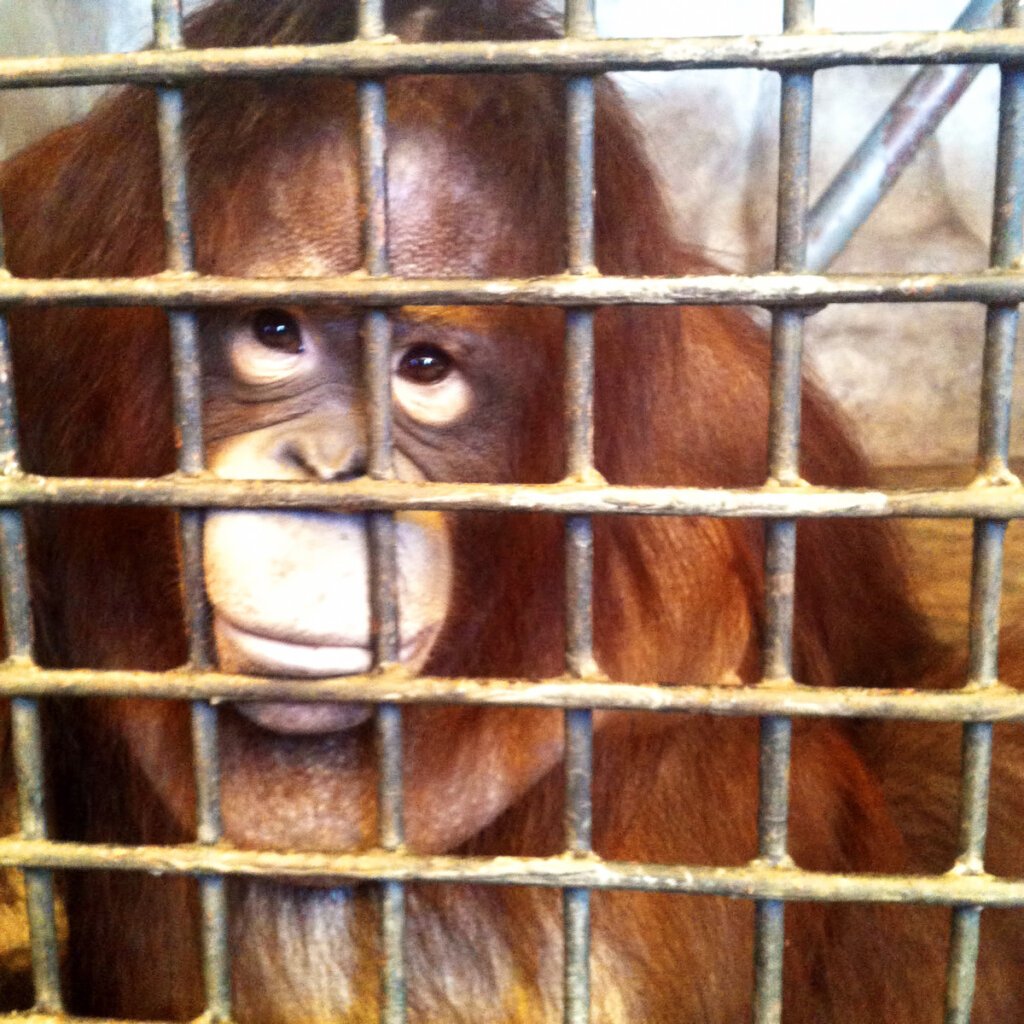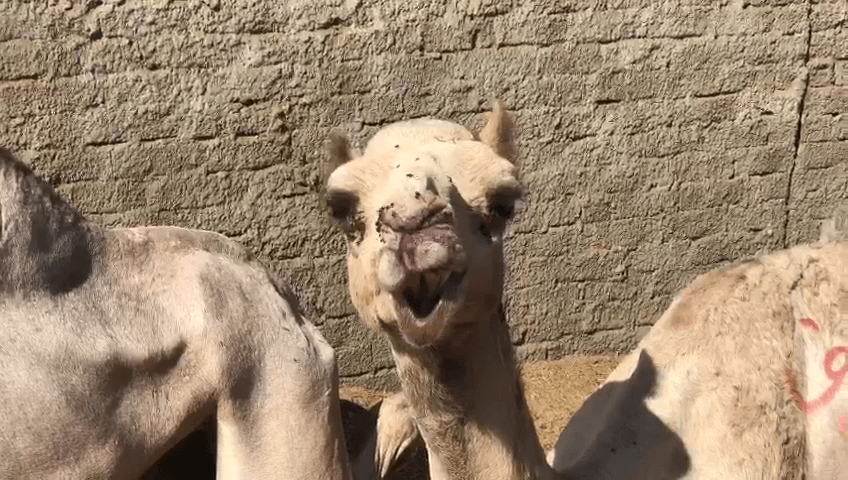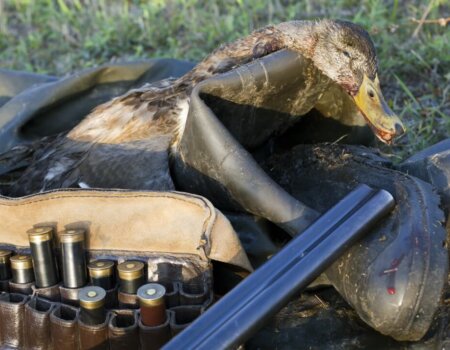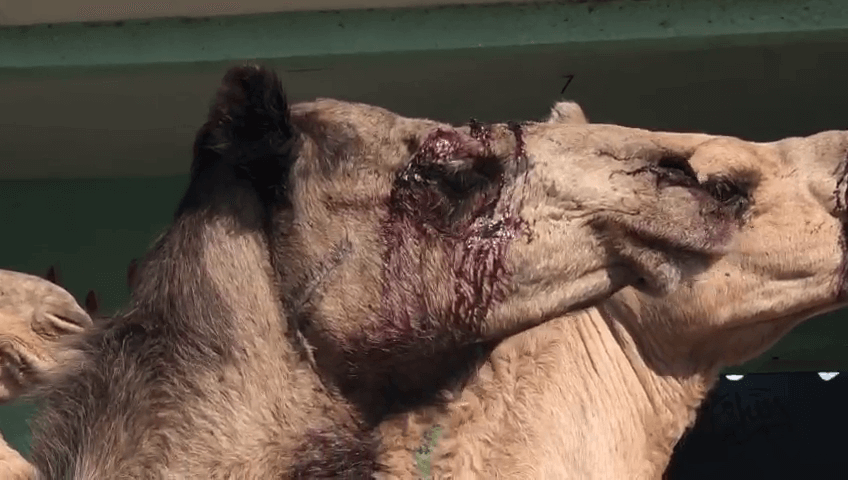
Beaten With Sticks, Bloodied, Dragged: Egypt’s Shameful Treatment of Camels
At the notorious Birqash Camel Market, Egypt’s largest, PETA Asia has once again obtained video footage of the horrific abuse of camels sold for meat, farm work, or use at top tourism sites.
This market is chaotic, noisy, and dusty. After a frightening and exhausting trip there jammed inside trucks, camels are forcefully unloaded and then bought, sold, and bartered.
Handlers carry sticks and routinely hit the camels, sometimes until they’re left with bloody wounds. The animals’ legs are bound so they can’t move around. One camel was tied to the back of a lorry and dragged down a street. No one intervened.
As detailed in a previous PETA Asia investigation, many camels purchased at the Birqash market end up at Egypt’s top historical sites, such as the Great Pyramid of Giza and Saqqara’s ancient burial site, to provide tourists with rides. And there’s no retirement for these animals after a lifetime of servitude. Once they’re too worn out to continue giving rides, they’re returned to the market to be sent to slaughter.

Tourists Leave Shocked and Appalled
Travel review sites are filled with comments from travellers denouncing the abuse they witnessed to both camels and horses:
- “I travel all over the world and have witnessed animal abuse but what I saw at the pyramids is by far the worst. If you are planning to go first read up on this, I wish I had done so before. The horses and camels work in deplorable conditions in the heat, no water, no rest, beaten.”
- “Injured camels, forced to work without proper hydration. Not impressed. We brought this to their attention and the staff ignored us.”
- “Very bad animal welfare on the camels and horses underneath the blankets they are walking skeletons. Do not ride these poor animals it is animal abuse.”
- “These poor horses and camels are beat for any reason.”
- “We didn’t ride any camels or horses as after seeing the way they treat them we didn’t want to contribute to the abuse, the poor animals are worked into the ground and it’s heartbreaking to see.”
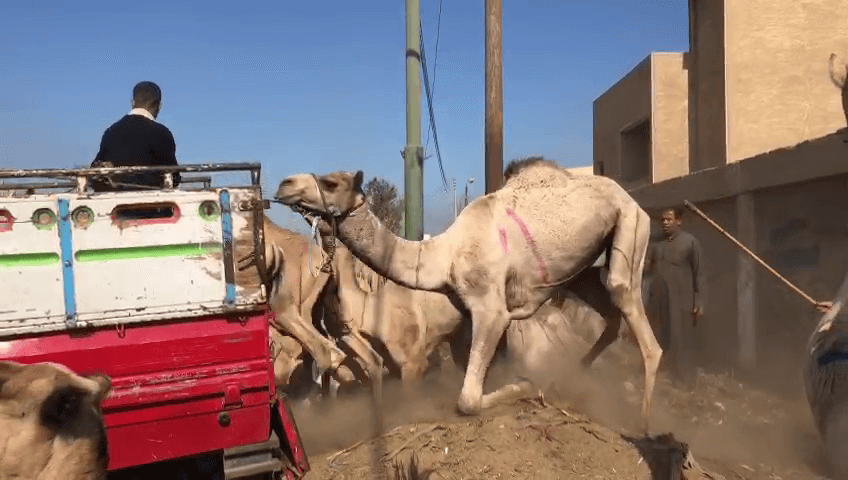
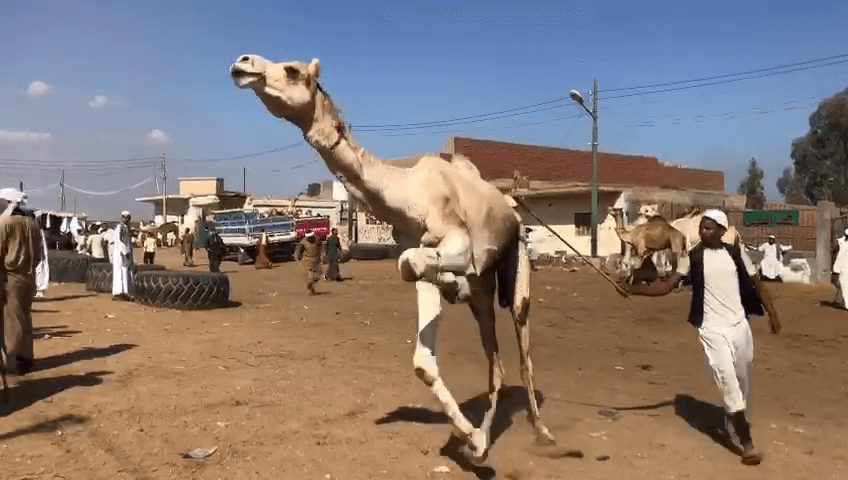
Global travel blogger Ric Gazarian put it this way:
Hundreds and hundreds of camels are crammed into this dusty market. PETA would have a conniption here since the animals are treated no better than a used car. All of the camels have one leg bound so they cannot sprint away. It looks painful. Men or boys casually sit on the camels sipping sweet tea like they would lean up against a beat-up Oldsmobile. And the camel merchants are quick with the switch. The camels were constantly being smacked.
Because of reports about the mistreatment of animals, travel advisor Lonely Planet does not recommend visiting the Birqash Camel Market.
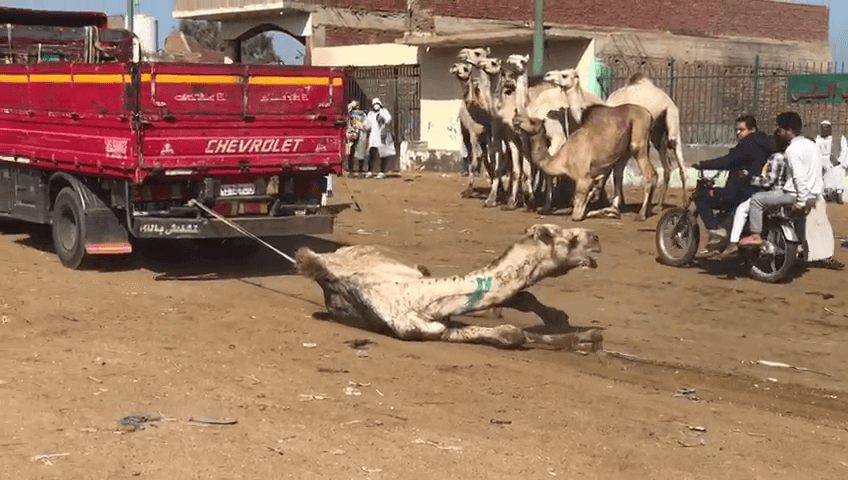
Egypt’s Empty Promises
PETA Asia’s previous footage and legal help from SPARE led to the arrests of three camel traders, and the governor of Giza, Ahmed Rashed, installed surveillance cameras. He promised to inform traders about taking care of the animals correctly and pledged to ensure that a fully equipped veterinary unit would be present in the market to care for sick animals. However, PETA Asia is still receiving similar footage of abuse at the Birqash Camel Market, so the governor’s efforts are clearly failing. We are once again calling on him to make CCTV footage available online.
Tourists Fuel Camel Abuse
It is tourists who are keeping this cruel cycle going. Those who pay to ride animals are directly contributing to their suffering. Please, wherever you go, don’t force animals to be part of your holiday.
What You Can Do
Never take a camel, horse, carriage, or elephant ride or make donkeys carry you or your belongings.
Please urge Egypt’s minister of tourism to end this abuse by banning the use of camels at these sites:
Help Animals in 2025: Renew Your PETA Membership!
